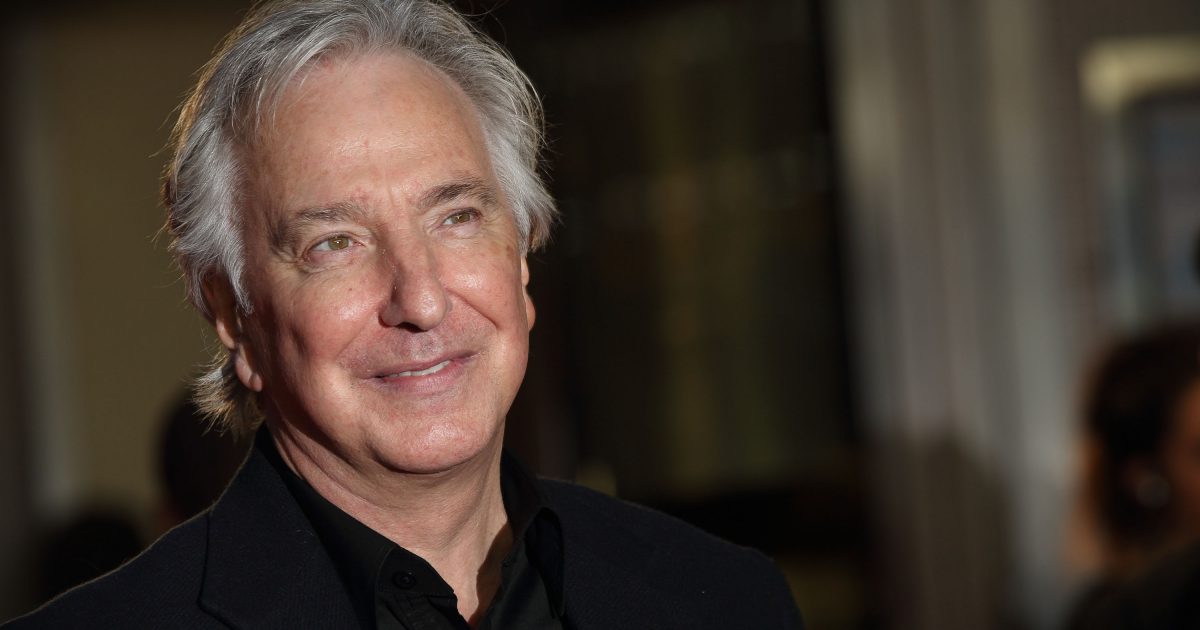Professor Snape's Absence
- Return to Hogwarts, a Harry Potter reunion event, will air on HBO on New Year’s Day, and fans are giddy with excitement. Missing from the event will be Alan Rickman, who passed from pancreatic cancer.
- Rickman sought medical attention after a stroke in 2015, which led to his diagnosis of pancreatic cancer, which he shared only with close friends.
- Pancreatic cancer is an aggressive disease; early detection of it can mean broader treatment options.

Variety shared the news yesterday, saying, “Daniel Radcliffe, Rupert Grint and Emma Watson will join filmmaker Chris Columbus and other cast members from all eight "Harry Potter" films for the first time in an HBO Max retrospective special to celebrate the anniversary of the franchise's first film, Harry Potter and the Sorcerer's Stone, which premiered 20 years ago today.”
Read MoreView this post on Instagram
Rickman will not be there, but other alumni are set to attend, including Helena Bonham Carter, Robbie Coltrane, Ralph Fiennes, Jason Isaacs, Gary Oldman, and Imelda Staunton. When news of the event broke yesterday, fans were quick to take to social media and share their excitement, with various fan posts on Instagram.
Posting a playful meme, user mustang88fm writes, “CAN’T WAIT FOR THIS REUNION? POTTERHEADS! Happy 20th Anniversary!! Daniel Radcliffe, Emma Watson, and Rupert Grint will reunite for Harry Potter 20th Anniversary: #ReturnToHogwarts on 2022, January 1st on HBO Max.⣔
View this post on Instagram
Actor Oliver Phelps, who played George Weasley in the films, writes, “Ever been to a school reunion everyone is interested in?? Streaming New Year's Day, only on @HBOMax. (International release coming soon).”
View this post on Instagram
Alan’s Cancer Battle
Rickman had a stroke in August 2015, which led him to seek medical care. Following the stroke, he was diagnosed with pancreatic cancer. The cancer progressed quickly, and Rickman passed months later in January 2016. He was only 69 years old.
The American Cancer Society (ACS) says that this year, approximately 60,430 people will be diagnosed with pancreatic cancer. The disease has a slightly higher rate of occurrence in men than in women.
Risk factors for pancreatic cancer include tobacco use, being overweight, having diabetes, and inflammation of the pancreas (which is typically caused by smoking or alcohol consumption).
Challenges to Screening for Pancreatic Cancer
Pancreatic Cancer Detection
Pancreatic cancer is often an aggressive disease, so early detection of it is crucial. Dr. Anirban Maitra, co-leader of the Pancreatic Cancer Moon Shot at MD Anderson Cancer Center, said in an earlier interview, "Because the pancreas is inside the abdomen, it often doesn't have symptoms that would tell you that something is wrong with your pancreas. By the time individuals walk into the clinic with symptoms like jaundice, weight loss, back pain, or diabetes, it's often very late in the stage of the disease."
When the disease is detected earlier, however, a wider number of treatment options may exist. "Each year in the United States, about 53,000 patients get pancreatic cancer," said Dr. Maitra.
"And unfortunately, most will die from this disease within a few months to a year or so from the diagnosis,” he says. “And the reason for that is that most individuals, about 80%, will actually present with what we called advanced disease, which means that the cancer has either spread beyond the pancreas or into other organs like the liver, and so you cannot take it out with surgeries."
Detecting Pancreatic Cancer Early Is Crucial
Learn more about SurvivorNet's rigorous medical review process.


